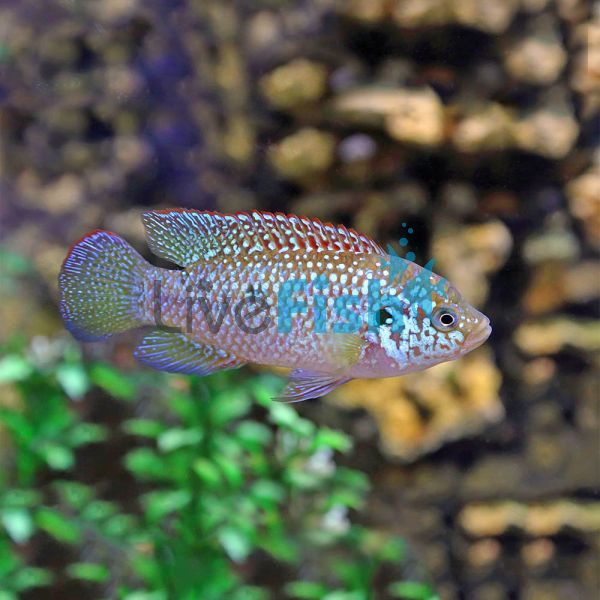Neon Jewel Cichlid 3.5cm
Hemichromis Sp
Neon Jewel Cichlid - Hemichromis Sp. Neon
$20.22
Availability:
Out of stock
SKU
CZ636035
- Buy 2 for $18.20 each and save 10%
- Buy 4 for $16.18 each and save 20%
- Buy 6 for $14.15 each and save 30%
Cichlids from Lake Tanganyika were first collected by German hobbyists during the 1930's. However, it was during the 1970s and 80s that the cichlids from lakes Tanganyika and Malawi began to become popular aquarium fishes. This trend continues to the present unabated.
Their colorful appearance, the many different species available, their behavior and their breeding are just some of the reasons the Cichlids are one of the most popular aquarium fish.
Due to their aggressive behavior, the tank for African cichlids should be as large as possible, with its length being more critical than its height; meaning the longer the better.
In the Cichlid tank there must be places of refuge. These can be rock caves, large pieces of driftwood or even inverted flowerpots. Most large species of Cichlids will dig up the substrate material, and occasionally will remove plants from the substrate. The Angelfish, Discus and the dwarf species Apistogramma all prefer a densely planted tank.
The water temperature should be in the range of 24-28 degrees celsius, slightly higher for the Discus. The diet should consist of live and frozen food of all kinds as well a large flake staple food. Large specimens can be feed Earthworms, garden Crickets and kitchen leftovers.
Their colorful appearance, the many different species available, their behavior and their breeding are just some of the reasons the Cichlids are one of the most popular aquarium fish.
Due to their aggressive behavior, the tank for African cichlids should be as large as possible, with its length being more critical than its height; meaning the longer the better.
In the Cichlid tank there must be places of refuge. These can be rock caves, large pieces of driftwood or even inverted flowerpots. Most large species of Cichlids will dig up the substrate material, and occasionally will remove plants from the substrate. The Angelfish, Discus and the dwarf species Apistogramma all prefer a densely planted tank.
The water temperature should be in the range of 24-28 degrees celsius, slightly higher for the Discus. The diet should consist of live and frozen food of all kinds as well a large flake staple food. Large specimens can be feed Earthworms, garden Crickets and kitchen leftovers.
| Scientific Name | Hemichromis Sp |
|---|
Write Your Own Review




